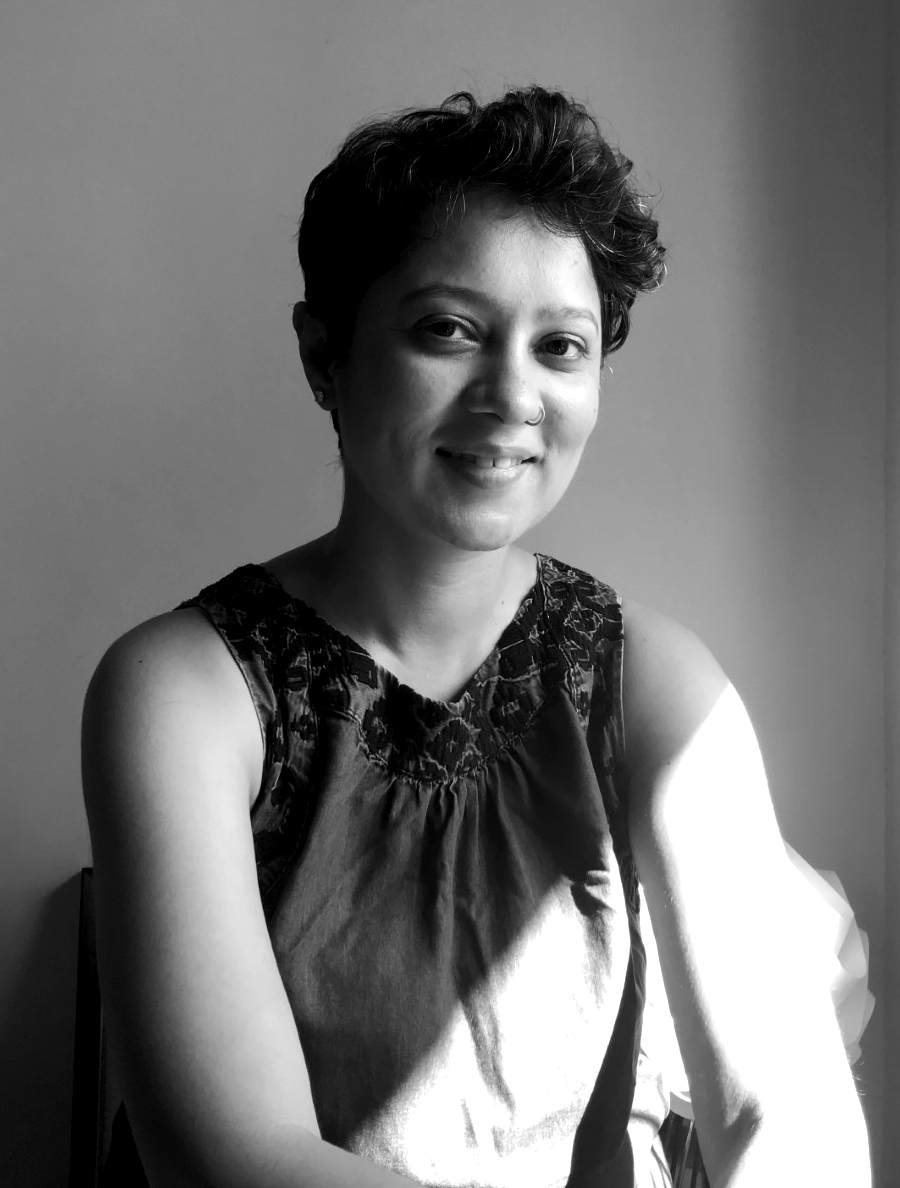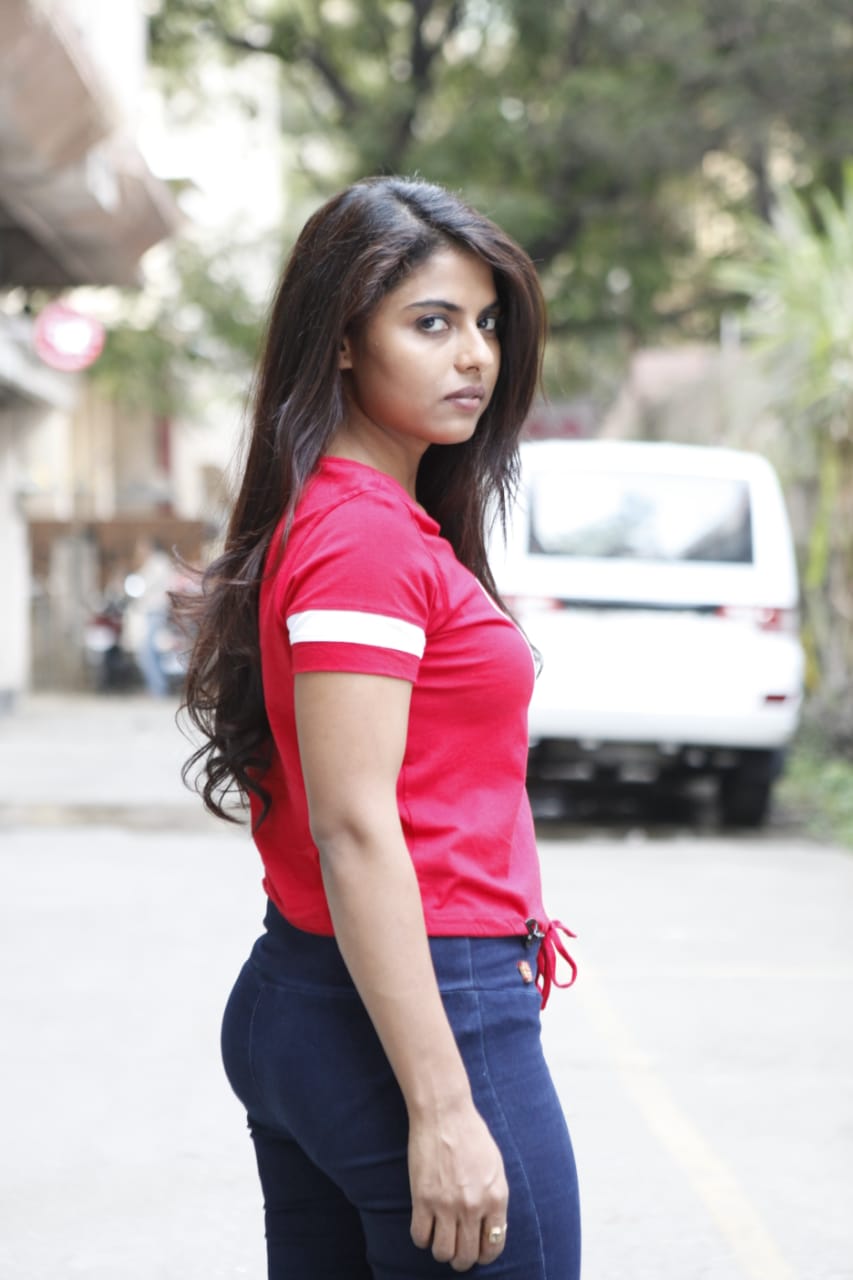Straight from IFFLA 2019 comes this extremely quick-witted and original satire The Shaila(s).
In her desperate attempt to keep up with the Joneses, Lexi, a lonely South Bombay socialite plans to host a fabulous tea party. But she has trouble with one vital element required to pull off this grand endeavour, the retaining of that unicorn like species – a good maid. After her search, Lexi finds the perfect candidate in Lakshmi, a seemingly meek girl, who she renames ‘Shaila.’
In the course of the film their relationship unravels, as an increasingly paranoid Lexi desperately clings to Shaila, not only as a way of improving her social standing, but also as her sole emotional support. However as Shaila recognises Lexi’s weaknesses the power dynamics shift, allowing for a brief but tender bond to develop between them. Till things turn topsy-turvy again.

The director, Neha RT, picks a subject that is true to urban India, and is yet rarely explored - especially with such original humour and layered insights. Even as she packs her film with delightful comical absurdities, she manages to touch on the fact that a maid is the only person most home-bound woman have any agency on, and despite the class difference, they are the only ones who are privy to their secrets and sorrows.
The film is filled with keen observations and delightful details ("yes" and "no" labels for food, "maid-karma", beautiful yet tacky tea-party invites) and the relationship between Lexi (absolutely fantastic performance by Kaneez) and her maid (really chilled out and funny Suman) is like a tug-of-war between the two women. At one point, Lexi even wonders if her maid is talking to her friend and she calls both of them to check if their mobile tone is busy, an act one reserves for one's boyfriend. Their power dynamic playfully shifts based on the maid's need for money and Lexi's dependency on her for throwing the tea party.
Following is a brief conversation we had with the director:
WHAT INSPIRED YOU TO TELL THE STORY?
I grew up in Mumbai in an upper class home surrounded by maids, nannies and cooks. As a child I remember my grandmother would rename any maid whose name happened to be shared by another family member, or that was difficult to pronounce. I was fairly horrified by this practice.
When I had had children of my own did I begin to understand the desperation to have a maid. Online there are communities of desperate mothers with young children always on the hunt for domestic help. I became fascinated by the kinds of conversations that were taking place on these forums. A lot of these discussions ended up demeaning and dehumanizing the women that were being hired to work. I began to see this relationship between madam and maid as a kind of twisted love story.
The relationship has an inherently skewed power structure, but it also allows for a great deal of intimacy since everything unfolds in the most intimate space of all: the home. For the madam, the maid can go from being a trusted confidant to being a punching bag for her frustrations. Since this employer-employee relationship is unregulated, often the dynamics are driven by age-old feudal, classist and casteist norms. A satire seemed the right form to tell the story of this dysfunctional relationship with its strange mix of both intimacy and abuse.
WHY IS THE FILM IN BLACK AND WHITE, AND WHAT DROVE THE MUSICAL CHOICES?
The film is told entirely from Lexi’s point of view, as a kind of love story gone sour. It has its ups and downs, with the courtship, the honeymoon period, the fights and then the breakup. We decided to use black and white to romanticize the story. Black and white also serves as a social equalizersrendering both Lexi and Shaila as equals. I wanted the film to have a western classical score, to evoke the sense of a culturally refined ‘western’ lifestyle. Living in high-rise apartments in Mumbai it becomes easy to exist in a kind of bubble, far away from the reality of the urban Indian sprawl.
WHAT WAS THE CASTING PROCESS LIKE?
For the cast a friend, Amita Sehgal, a prominent casting director put together a fabulous group of actors. For the role of Lexi when she suggested Kaneez Surka, I was excited because I am a huge fan of Kaneez’s work. Even though it’s not the type of work Kaneez usually does, she was very excited by the script and decided to come on board. All of the cast, including Suman and Manka were wonderful actors and a pleasure to work with. I ended up casting my mother for the role of the neighbour aunty. I really wanted to include the actual women who have been a source of inspiration for the film, the maids. So I was very happy when the maids who have been working with me and my family for many years agreed to be a part of the film.
WHAT WAS THE BIGGEST CHALLENGE IN MAKING THE FILM? WHAT SURPRISED YOU ABOUT THE PROCESS?
The biggest challenge was wearing the many hats that I wore for this production. Being the writer, director, producer, editor, and production designer was a challenge that I wish I had been able to meet better. Editing the film took almost six months because I think I was too close to my material but with time I managed to ‘kill my darlings’ and make the cuts necessary. I was very surprised by how much the film evolved in the process of editing.
About Director:
Neha RT:

Neha studied architecture at the Rhode Island School of Design before making the switch to film. She assisted for a number of years on TV commercials for ad filmmaker Prahlad Kakkar. Her first short film ‘Erased’ was screened at international film festivals and won awards including the Jury prize at Sehsüchte, International Student film festival, Germany. She has studied screenwriting at UCLA, and her first feature project was shortlisted for the Torino Film Lab. Neha is based in Mumbai where she works as a screenwriter.
Key Cast:

 Kaneez : Kaneez is an improviser, comedy actor, sketch artist and stand-up comedian. She is India’s first female improviser and has been invited to four international Improv Festivals, in Amsterdam, Berlin, Seattle and Toronto. Currently, she hosts a game-show called ‘The General Fun Game Show’, and conducts improv workshops across the country, fuelling the nation’s love for novel forms of comedy. Her latest special 'Improv All Stars' currently airs on Amazon Prime video.
Kaneez : Kaneez is an improviser, comedy actor, sketch artist and stand-up comedian. She is India’s first female improviser and has been invited to four international Improv Festivals, in Amsterdam, Berlin, Seattle and Toronto. Currently, she hosts a game-show called ‘The General Fun Game Show’, and conducts improv workshops across the country, fuelling the nation’s love for novel forms of comedy. Her latest special 'Improv All Stars' currently airs on Amazon Prime video.
Suman :Suman graduated in acting from the National School of Drama, New Delhi in 2014. She has been awarded a National Scholarship to study acting from the Ministry of Culture, Govt. of India. She has performed in a number of theatrical productions, TV shows, feature films, ad films and short films, including the feature film 'Mom'.
Manka :Manka has been acting since 2014. In 2015, she trained at the Lee Strasberg Theatre and Film Institute, NYU where she did an intensive method acting course. She has worked in a number of theater productions with the Jeff Goldberg studio in Mumbai. She has starred in short films, theatrical productions, commercials, films and web series.
Cinematographer:
Satya Rai Nagpaul
Satya Rai Nagpaul is a cinematographer, who thrives at the interniches of documentary and fiction, political and personal, art and commercial. His films have screened at festivals such as Cannes, Venice, Rotterdam, Berlinale. A graduate of the Film & Television Institute of India [FTII], Satya won the National Award for Best Cinematography for his first feature, Alms of the Blind Horse [2011]. Satya’s most prominent work on a queer subject includes the film ‘Aligarh’, that screened at both MAMI and Busan in 2015. In 2017, Satya won the Indian industry’s biggest prize, the Filmfare Award, for Best Cinematography for the film, ‘The Fourth Direction’, for the Punjabi edition of the awards.





